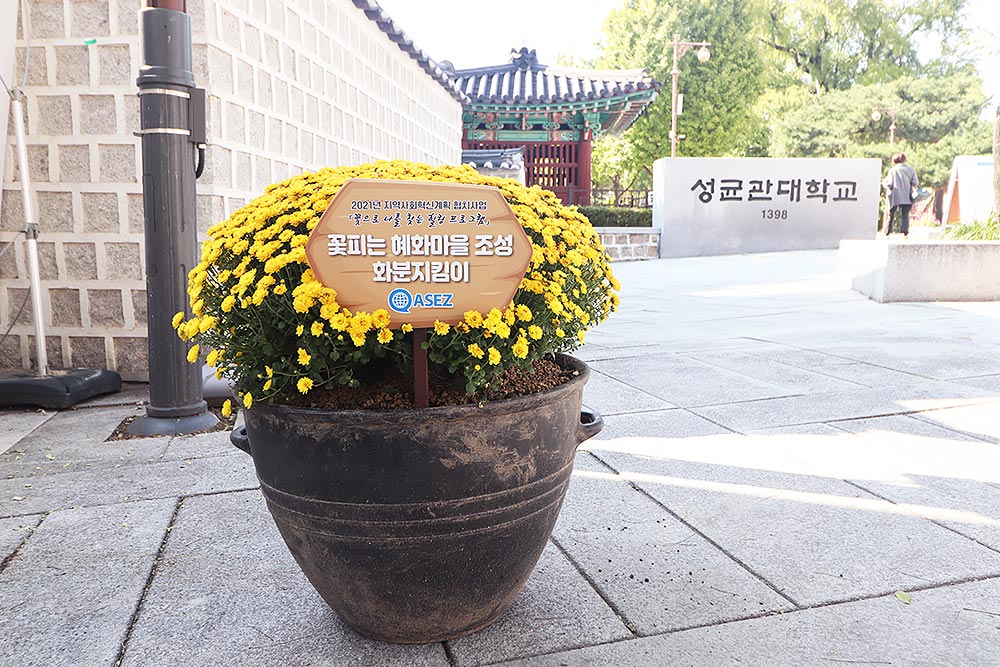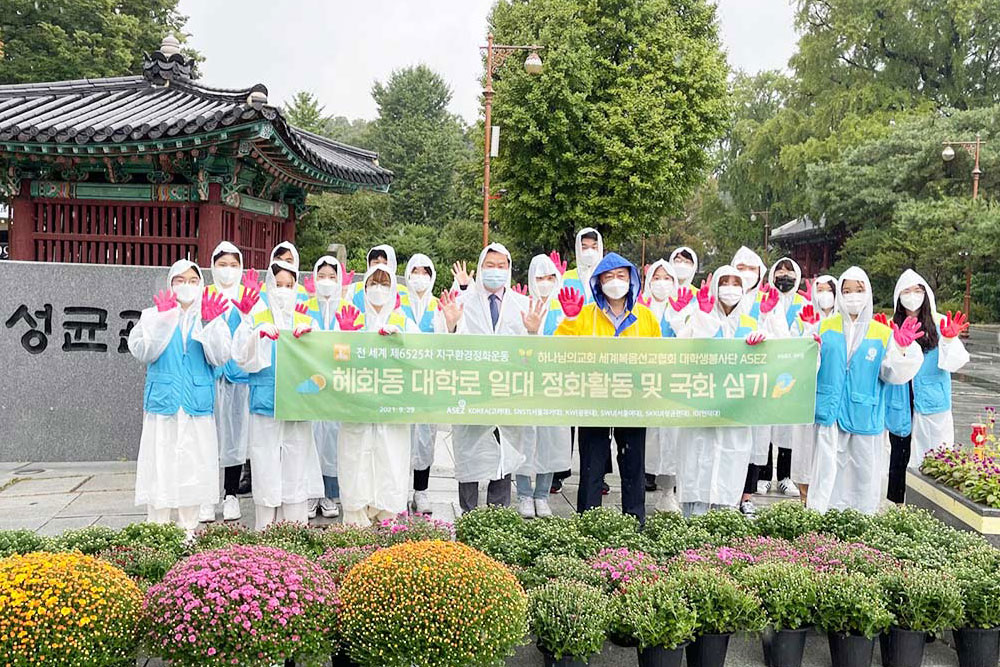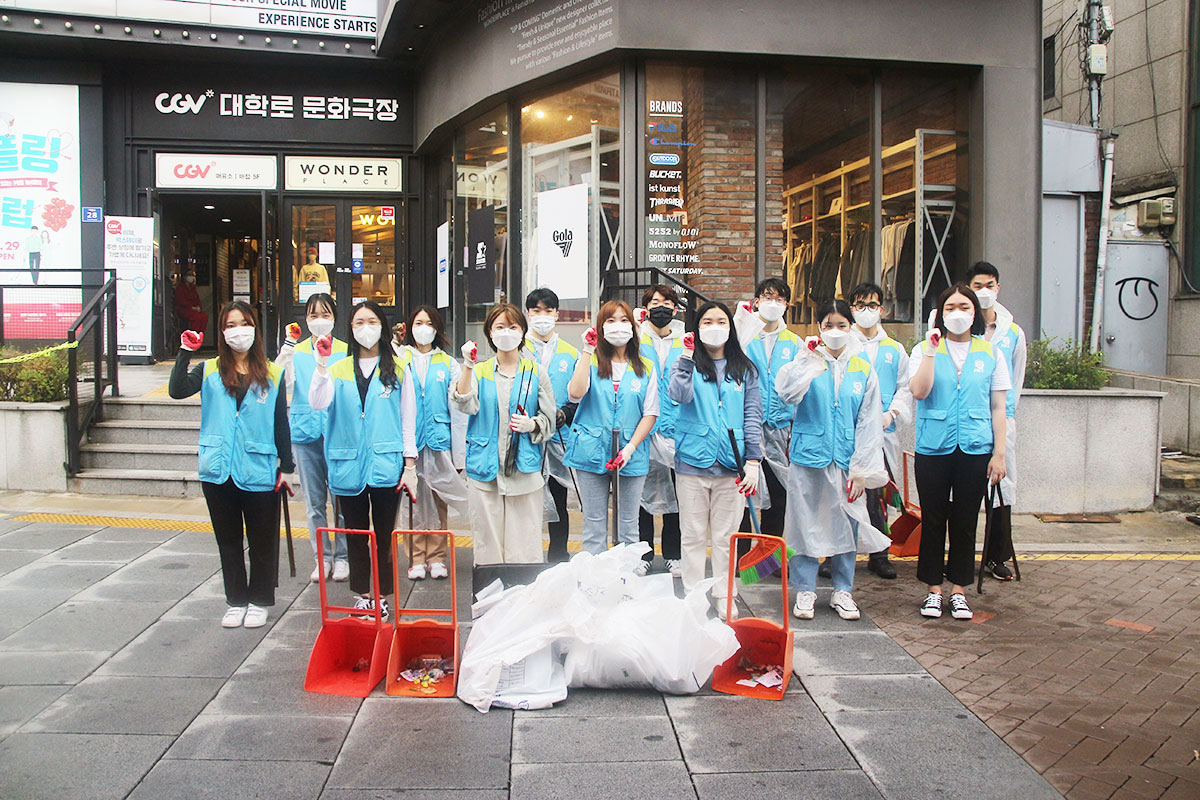
More than 90% of crimes occur in cities–large cities and small and medium-sized cities. Crime is always lurking around us and anyone can be a victim. As part of crime prevention, special attention is paid to Crime Prevention Through Environmental Design [CPTED]. According to the Korea Police Agency and Architecture & Urban Research Institute [AURI], it was found that the number of five major crimes in the areas of Seoul, where CPTED project was implemented, decreased up to 54%. ASEZ members rolled up their sleeves for the CPTED project to prevent crime in cities.
Despite the rain, they cleaned 3 km (1.86 mile) around Hyehwa-dong and Daehak-ro St. in Seoul, Korea, adhering to the COVID-19 prevention guidelines. Due to large floating population, a lot of trash had been thrown way, creating an unpleasant atmosphere. The volunteers were divided into small groups and picked up various kinds of trash, such as cigarette butts, toilet paper, plastic bags, cans, and plastics scattered all over the streets.
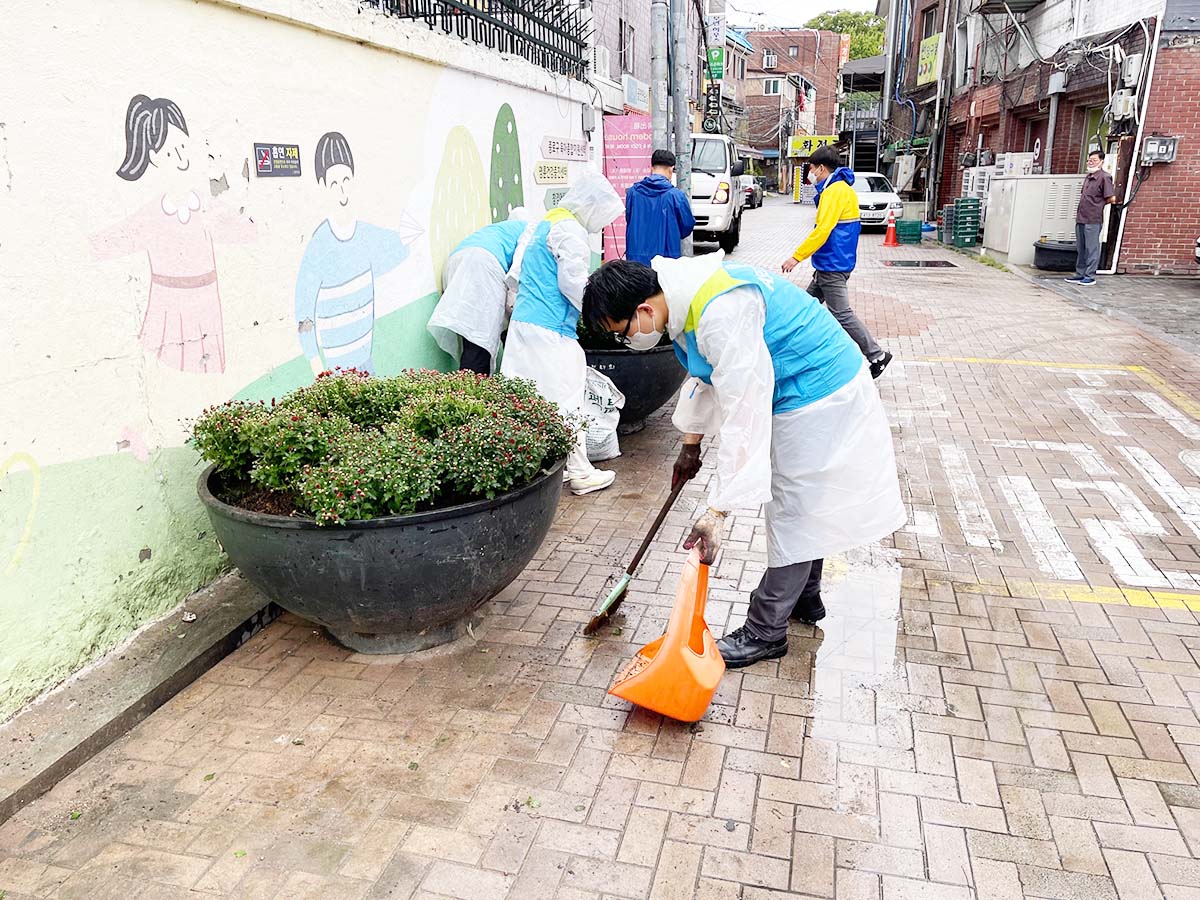
Recently, the new direction of CPTED is to create non-physical environment, that is, social atmosphere, as well as physical environment. Beautification is another way of creating a safe and peaceful atmosphere in cities. ASEZ members beautified the city by planting chrysanthemums, which was being held by the Hyehwa-dong Community Center, along with the street cleanup. They rearranged big pots, and planted chrysanthemums after pulling weeds and plowing the soil.
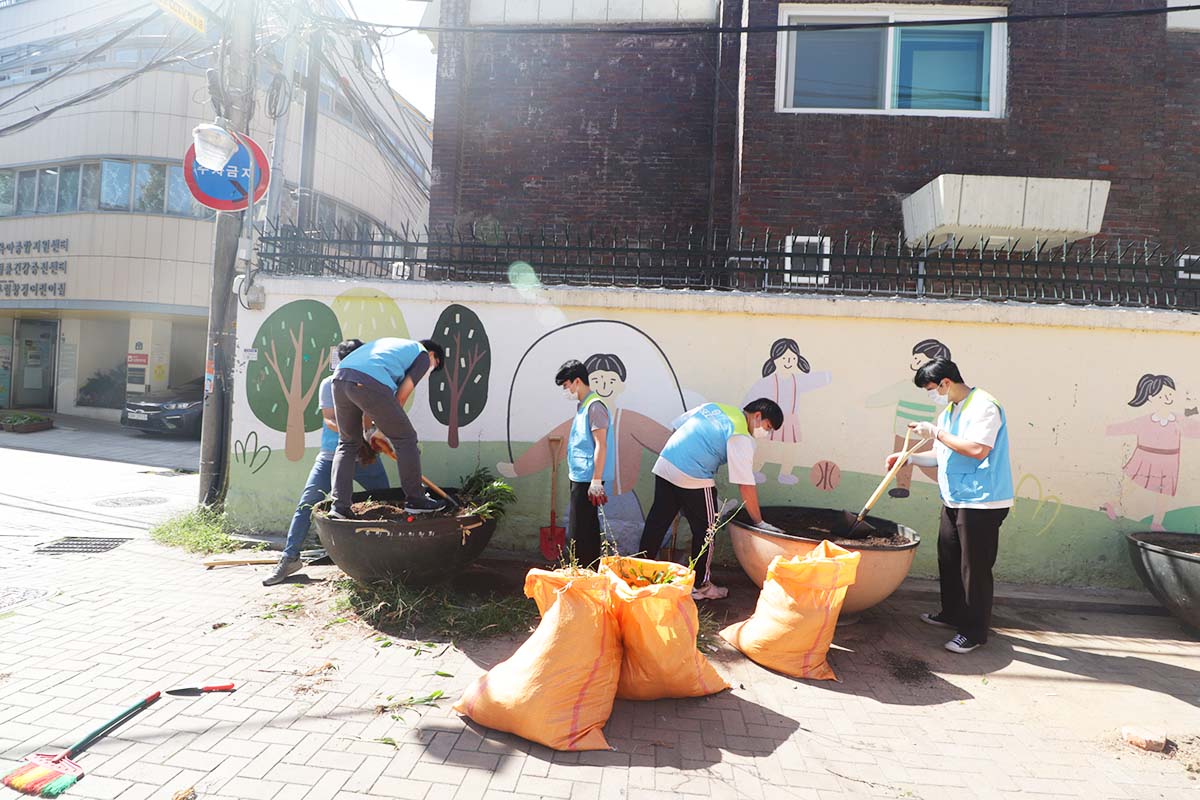

The Hyehwa-dong Community Center provided garbage bags, cleaning tools, chrysanthemums, and raincoats. Head of the Ward Jo Du-hui expressed his gratitude, saying, “In the difficult time of COVID-19, ASEZ university students planted chrysanthemums to help Hyehwa-dong Community Center even in this bad weather. They gave hope and courage to the residents by beautifying the city.”

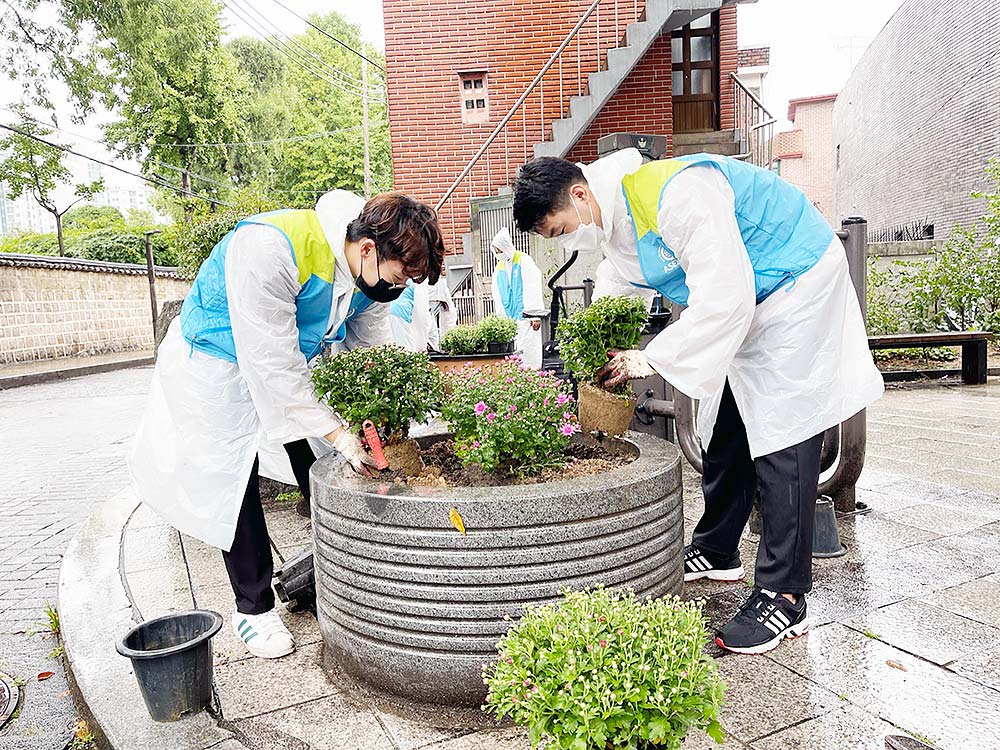
“It was a small effort as a college student, but I felt rewarded as the residents and shop keepers showed their interest and supported us. It was a meaningful time to make a good influence even a little,” said Park Gwan-hyeok (from Sungkyunkwan University), who took part in the event. Kim Jin-woo (from Korea National Open University) too, felt rewarded and said, “It was meaningful to take part in the volunteer service despite the bad weather to take care of Daehak-ro St. where my university is located.”
On that day, ten 100-liter bags were collected by the members through the cleanup and beautification projects. We expect ASEZ will bring about big changes in society though their volunteer activities are small, as the Broken Windows Theory goes.
